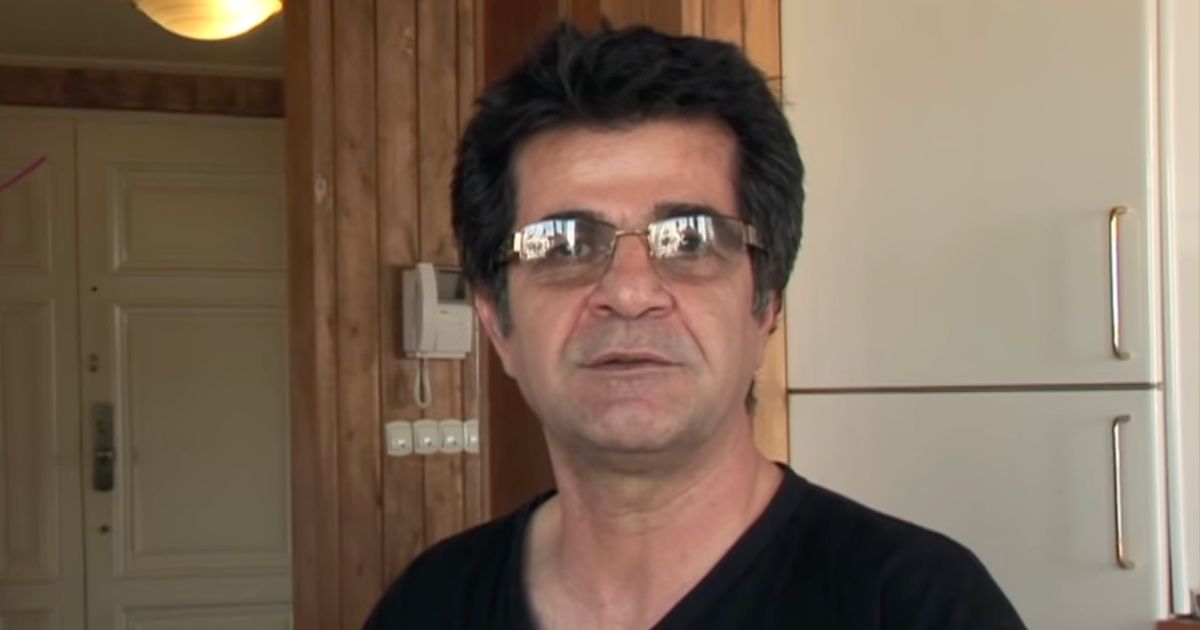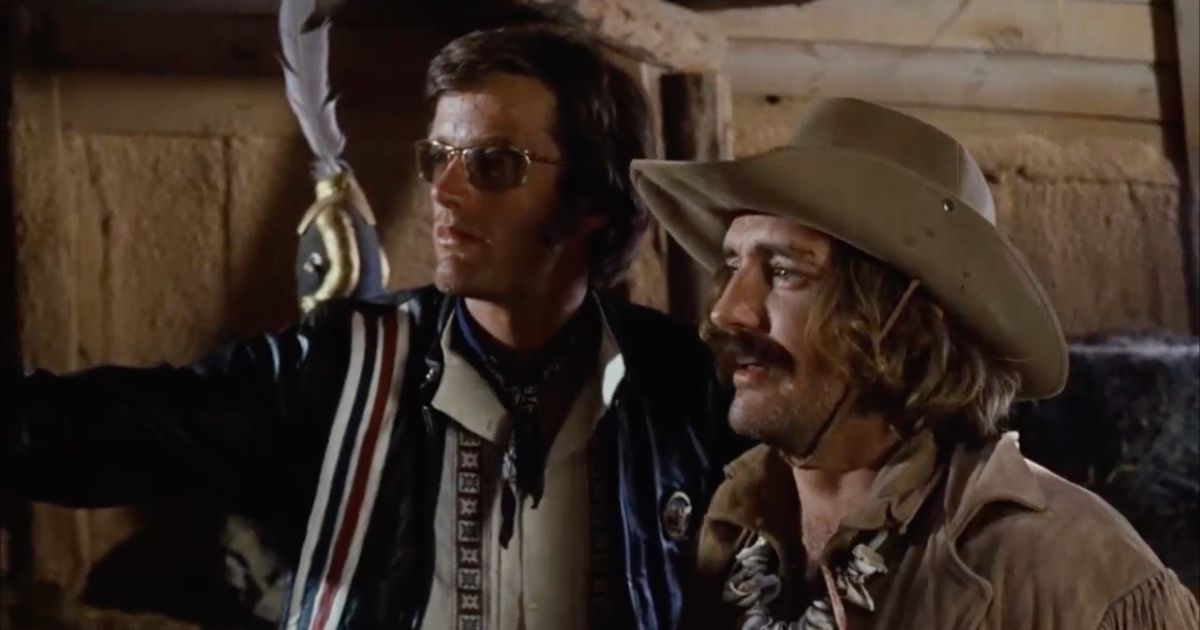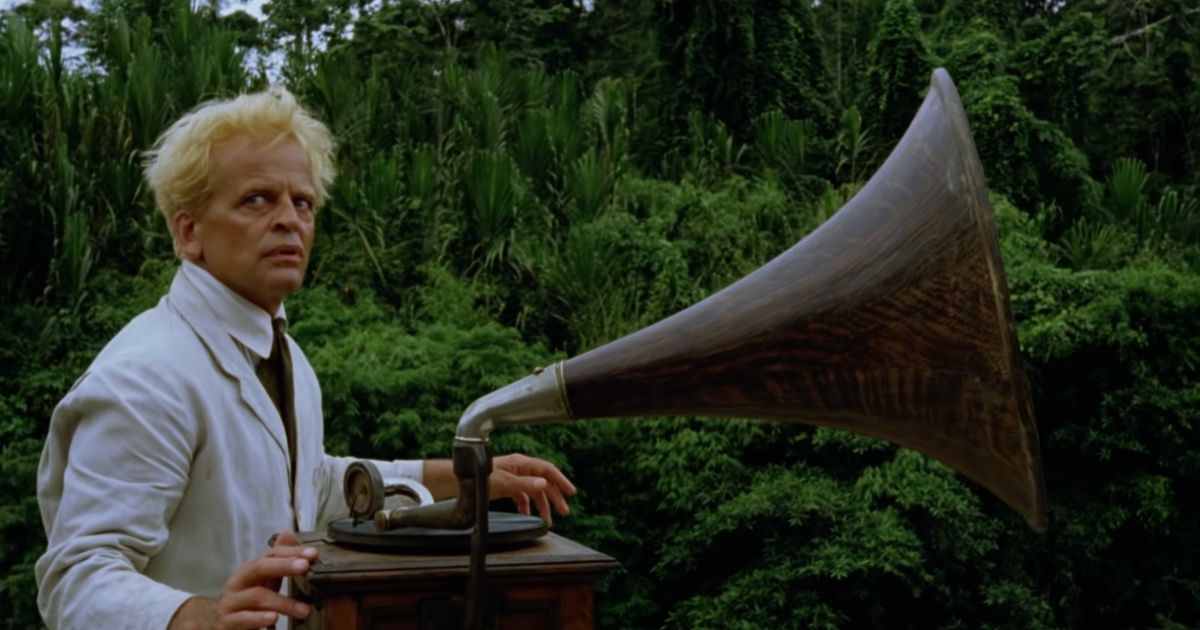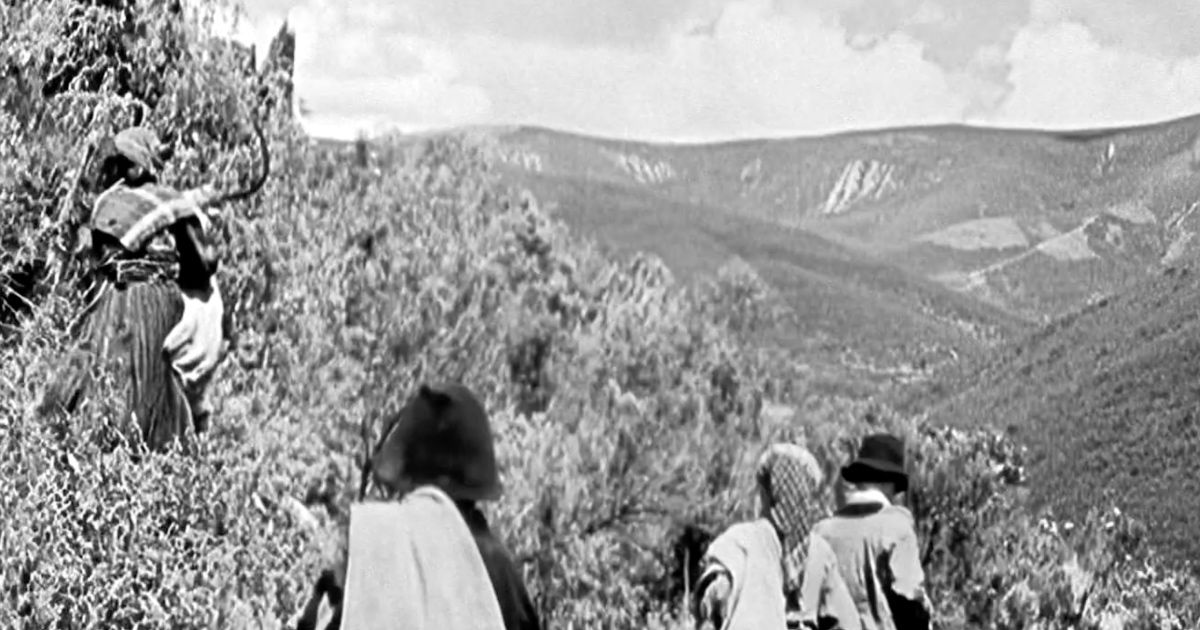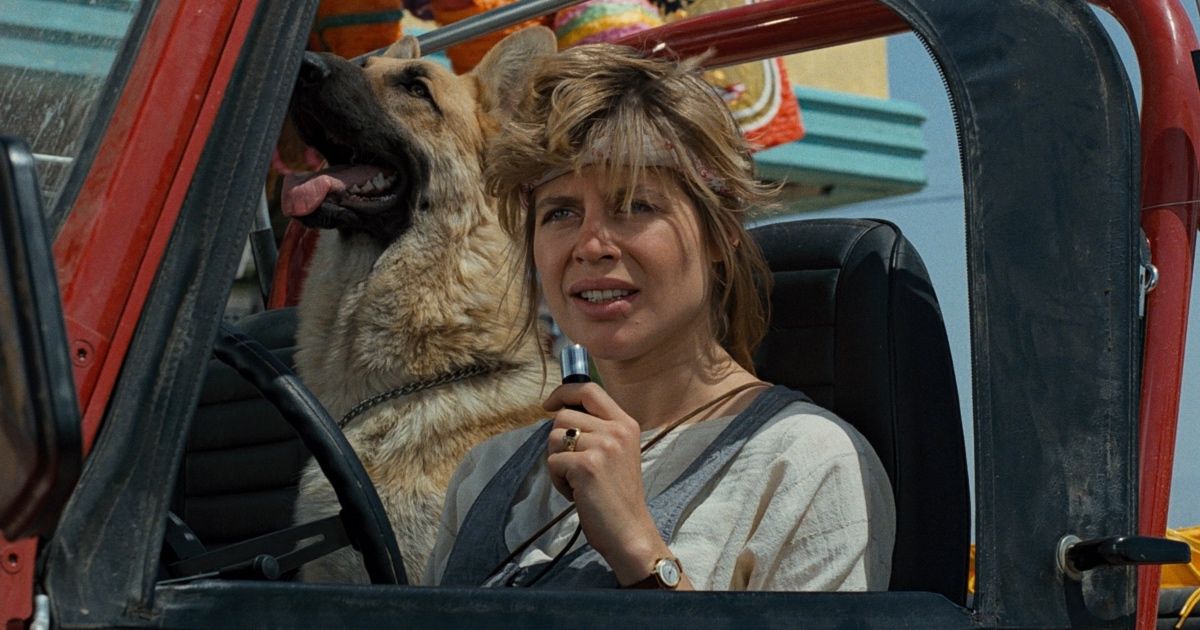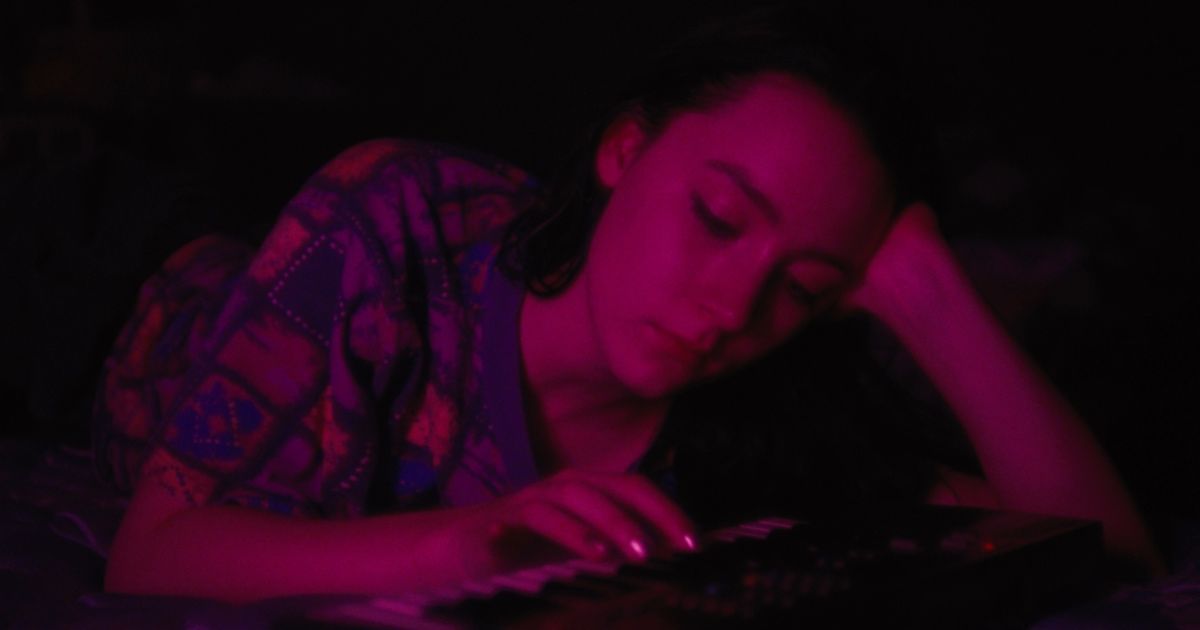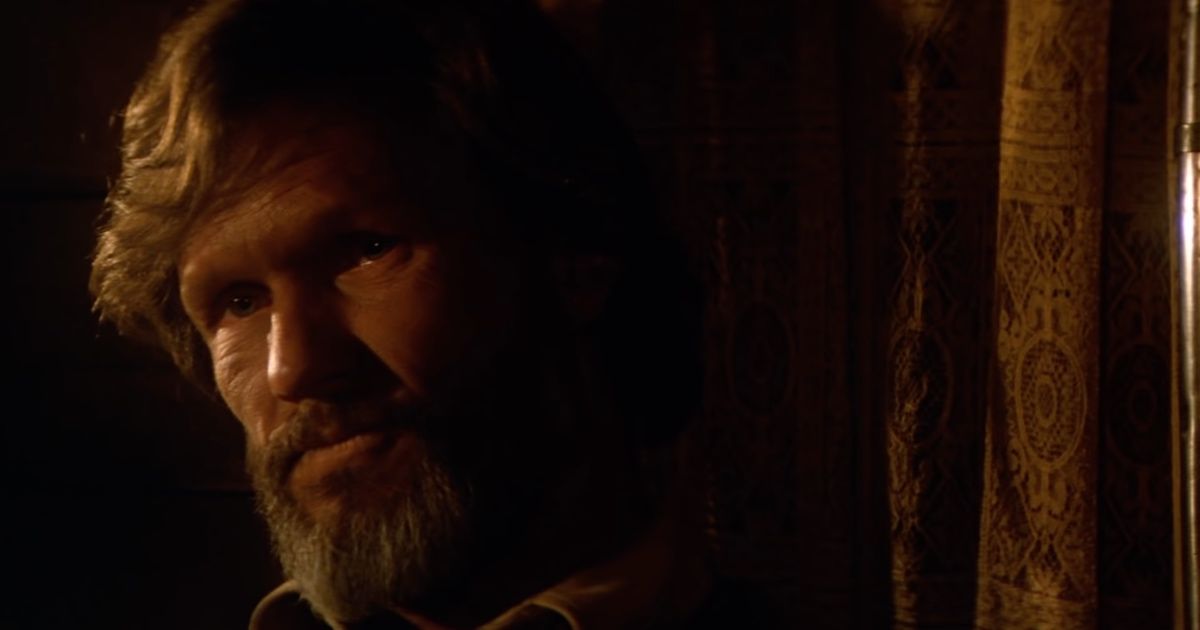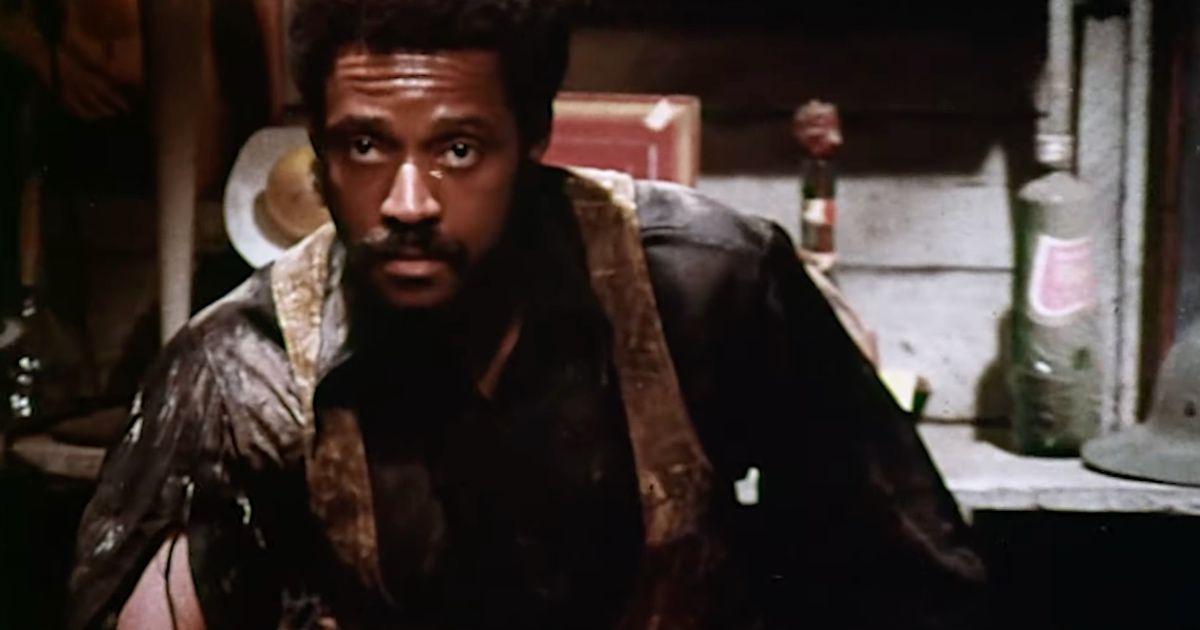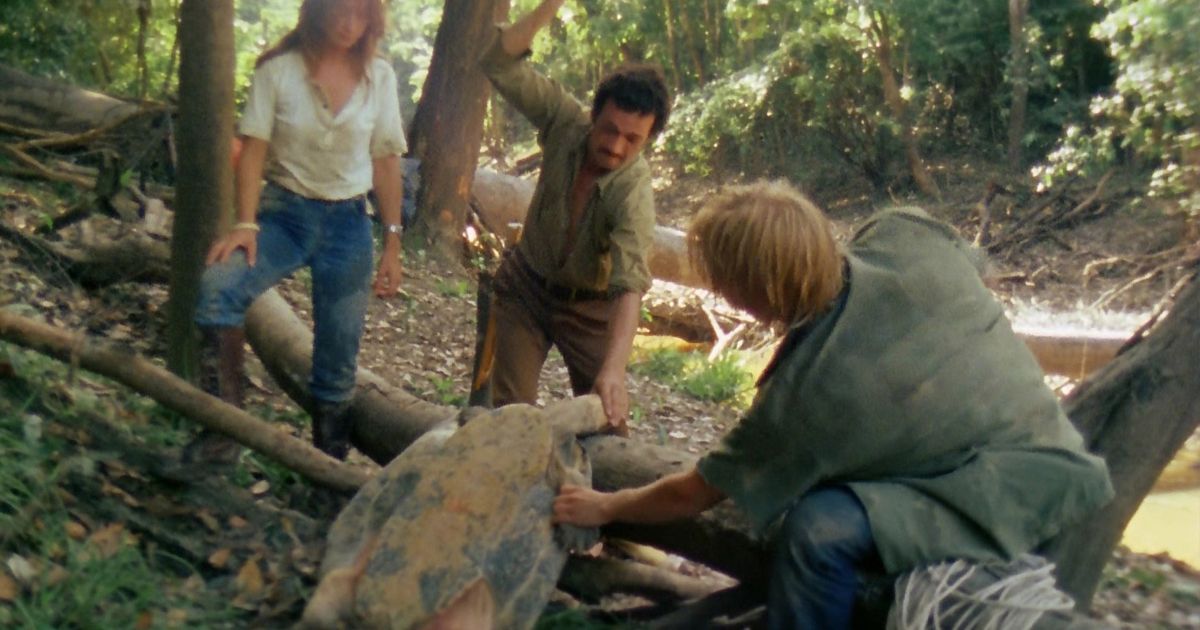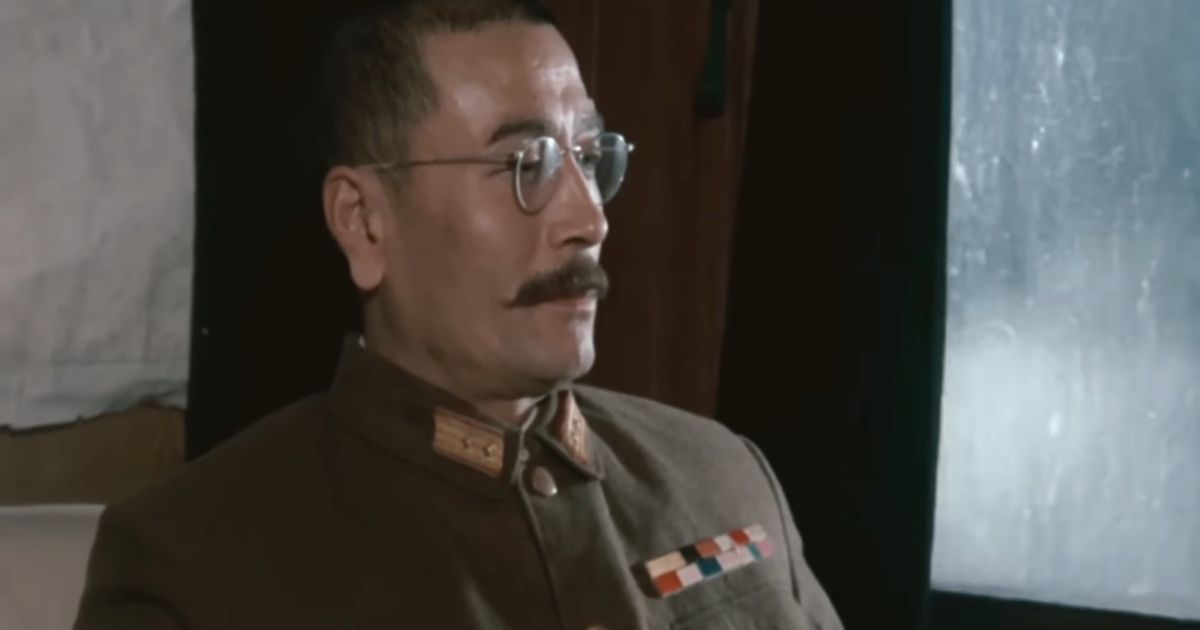Directors worldwide go as far as they can to complete their movies and not compromise their view of cinema. Sometimes, this insatiable will to achieve the best and most uncompromising movie that can be made requires operating outside the law. It can be for budget reasons, it can be for the rigid screenplay, or it can be just a matter of enhanced realism.
No matter what, these directors show how sometimes breaking the law is accepted to keep the vision intact. At the same time, some of the movies mentioned in the list are symbols of the endless possibilities of cinema and its communicative power. From Ruggero Deodato and Ryan Gosling to Luis Buñuel and Werner Herzog, all these directors didn't hesitate to put their immaculate criminal records at stake to gift us great movies.
10 Dennis Hopper - Easy Rider
One of the movies that influenced the 1970s American counter-cultural movements the most, Easy Rider features many famous and cult scenes. Among those, the campfire scene is singularly memorable for the real use of marijuana during the shooting; at the same time, Jack Nicholson and Peter Fonda both recalled how drugs were flowing free among the crew during production. In a time when marijuana was still illegal at the federal and states level, Dennis Hopper had to circumvent the law for a more realistic touch.
Easy Rider features Peter Fonda and Dennis Hopper as Wyatt and Billy respectively, two bikers who smuggle cocaine from Mexico to Los Angeles. After being paid for the service, they embark on a road trip to New Orleans to enjoy the money. One of the peaks of the New Hollywood movement, Easy Rider is a timeless monument of uncompromising and rebellious cinema.
9 Werner Herzog - Fitzcarraldo
The German director recounted with Conan O'Brien the "little trick" he had to perform to continue with the filming of Fitzcarraldo. A border war between Peru and Ecuador was developing, and because of the situation, Herzog was incapacitated to continue shooting. Herzog overcame the situation by lying to a colonel about a shooting permit and forging it.
Written, co-produced, and directed by Werner Herzog, Fitzcarraldo stars Klaus Kinski as Brian Sweeney Fitzgerald, an Irish man living in Iquitos, Peru. Fitzgerald, nicknamed Fitzcarraldo, is a big fan of opera and wants to build an opera house in the jungle. Famous for the distressed production and the countless fights between the director and Kinksi, documented in the making of the movie Burden of Dreams, Fitzcarraldo has become one of the strongest movies in Herzog's filmography.
8 Luis Buñuel - Land Without Bread
Land Without Bread can be described as a pioneering attempt to create a mockumentary and a fundamental movie in Buñuel’s career. Buñuel wanted to depict the poor and extreme conditions of the inhabitants of Las Hurdes, Spain, and to do so, he had to employ some behind-the-camera tricks to emphasize the topics portrayed. In fact, the Spanish-Mexican director partially falsified the representation of the story by exaggerating the already precarious conditions of Las Hurdes’s population.
At the same time, a mountain goat was shot to create a scene, and a donkey was allegedly covered in honey and stung several times until death by bees. The movie suffered censorship at the time and is still controversial in Las Hurdes to this day, with the inhabitants complaining about the area's inexact and deliberately exaggerated representation.
7 James Cameron - The Terminator
While filming The Terminator, James Cameron had to resort to guerrilla filmmaking and its illegal shooting style to overcome the small budget. With a total production budget of nearly six million, the Canadian filmmaker shot many scenes at night without a police permit in order to avoid blowing up the expenses. The crew was also caught once by the police while shooting the ending scene but got away, telling the officer they were shooting a student film.
Co-written and directed by James Cameron, The Terminator is the first movie of the famous franchise. It features Arnold Schwarzenegger as the killer android from the future on the hunt for Sarah Connor (Linda Hamilton). The movie is characterized by amazing cinematography by Adam Greenberg, the solid directing style of Cameron, and the convincing performances by the cast. An impressive classic.
6 Ryan Gosling - Lost River
Lost River is set in a dilapidated and decaying Detroit. The actor Ryan Gosling, this time behind the camera, scouted all over the American city to find suitable locations for the movie. Once, Gosling was arrested by the police during the pre-production phase in an abandoned building; in fact, the officers didn't recognize the actor/director and thought he was stealing copper. Despite the misadventure, Gosling told the Los Angeles Times how the incident helped him develop the movie's main character.
Written, directed, and co-produced by Ryan Gosling, Lost River is a thriller with surreal and fantastic insights. It features Christina Hendricks as Billy, a single mother living in a declined neighborhood. All the residents are gone except for Billy, her sons Bones (Iain De Caestecker) and Franky (Landyn Joseph Stewart), and Rat (Saoirse Ronan), who lives with her grandmother (Barbara Steele).
5 Michael Cimino - Heaven's Gate
Heaven's Gate is mostly known in the cinema industry for being the last nail in the New Hollywood movement's coffin. The era of creative freedom, big budgets, and production companies' permissiveness came to an end after the movie bombed the 1980 box office. However, the movie also featured several animal abuses during the production phase of the movie, including a real cockfight and violence against horses.
Heaven's Gate is set in 1890 Jackson County, Wyoming, where Kris Kristofferson plays sheriff Averill during a battle between poor immigrants and rich cattle farmers. The movie gained a bad reputation over the years for the aforementioned poor box office performance and animal abuse but has since been re-evaluated, at least artistically. The cinematography by magistral Vilmos Zsigmond is deep, multilayered, and impressively poetic; simultaneously, Cimino is always impeccable behind the camera and never trivial. A controversial masterpiece.
4 Melvin Van Peebles - Sweet Sweetback's Baadasssss Song
Sweet Sweetback's Baadasssss Song is a 1970s crime drama and one of the best movies by Melvin Van Peebles. The low-budget production of the movie required the director to circumvent certain laws to complete it; in fact, the non-unionized crew was carrying guns on the set and threatening extras that wanted to leave early. At the same time, the soundtrack composed by Van Peebles was recorded by the Earth, Wind & Fire, at the time an up-and-coming band that wasn't paid for the work. Lastly, Van Peebles's son had a small part in the movie, which went against work laws.
Sweet Sweetback's Baadasssss Song is an example of the wild 1970s sets and has since achieved cult status. The movie is recognizable for portraying in a more realistic way the Afro-American experience and for its radical political undertone. Moreover, the movie shines for its modern, fast-paced editing. Unmissable.
3 Ruggero Deodato - Cannibal Holocaust
Cannibal Holocaust has been synonymous with controversy since its release in 1980. Due to the extremely gruesome character of some scenes, director Ruggero Deodato was later charged by the Italian justice system with indecency and murder, yes, murder. In fact, Deodato asked the actors not to appear in other roles for one year after the release of Cannibal Holocaust to elevate the movie's realism level. This excellent marketing strategy made the public believe the actors actually died in the movie.
At the same time, animals were subjected to acts of cruelty during production, and the final editing contains almost all the footage of the abuse. Despite wanting to create a politically critical film about western sensationalism and imperialism, Deodato might have followed the same logic. Cannibal Holocaust is a cult and an impressive movie, but its ethical flaws compromise it partially.
2 Jafar Panahi and Mojtaba Mirtahmasb - This Is Not a Film
This Is Not a Film was co-directed by Jafar Panahi and Mojtaba Mirtahmasb, as a protest against the decision of the Iranian government to sentence Panahi to six years of prison for supporting the opposition. He also received a 20-year ban from making movies. This Is Not A Film was shot secretly and smuggled out of the country in order to be submitted to the Cannes Film Festival.
The movie, shot partially on an iPhone, details the day-to-day life of the Iranian director while he is subjected to house arrest and is waiting for the results of his appeal. This Is Not A Film is a courageous and impressive movie, so simple and so powerful that one vision is enough to capture the dangerous and difficult reality Jafar Panahi has to live in. An important movie that shows that cinema can be more than entertainment. A political statement against censorship.
1 T. F. Mou - Men Behind the Sun
Men Behind the Sun has by now reached underground popularity and cult status, and it is mostly remembered for its most intense and gory scenes. The uncompromising director T. F. Mou decided to depict the atrocities told in the movie, which really happened, by employing real human body parts as props; at the same time, he was able to convince two doctors to be filmed during an autopsy of a deceased child and used it in the movie.
Men Behind The Sun is a hard-hitting and radical movie that, despite the questionable decisions of its director, shows harsh but real events. In fact, it is the story of Unit 731, a Japanese secret unit that engaged in cruel biological experiments on Chinese and Siberian people during World War II. Men Behind The Sun is a provoking movie that should be seen only by seasoned and advanced viewers.

